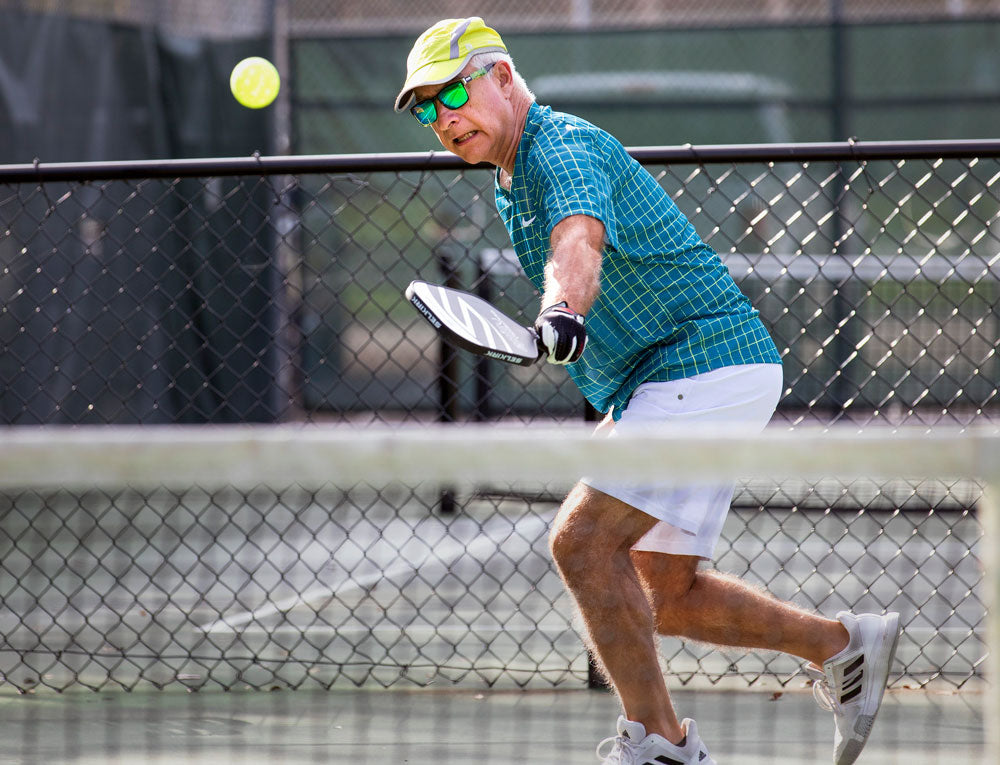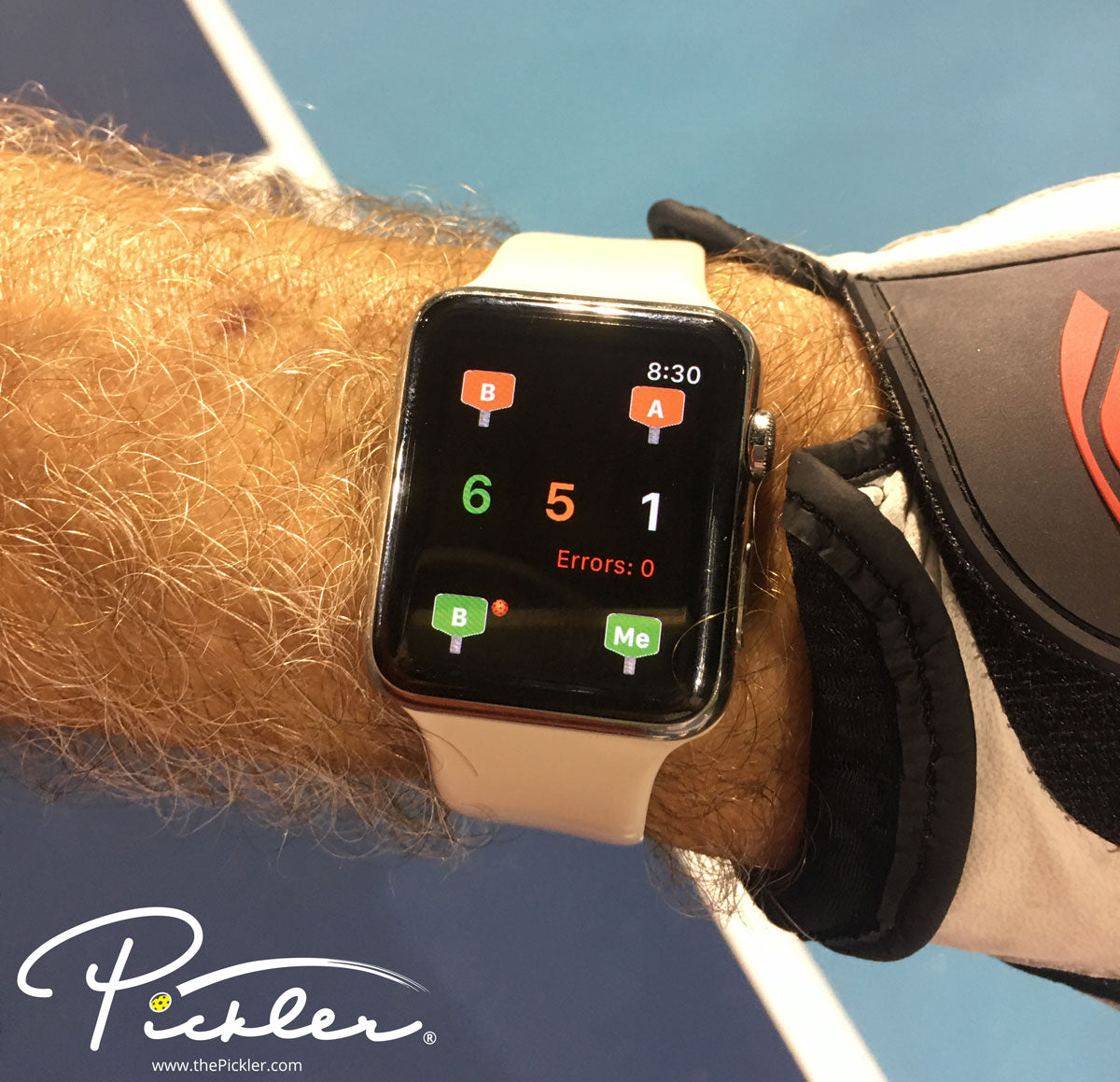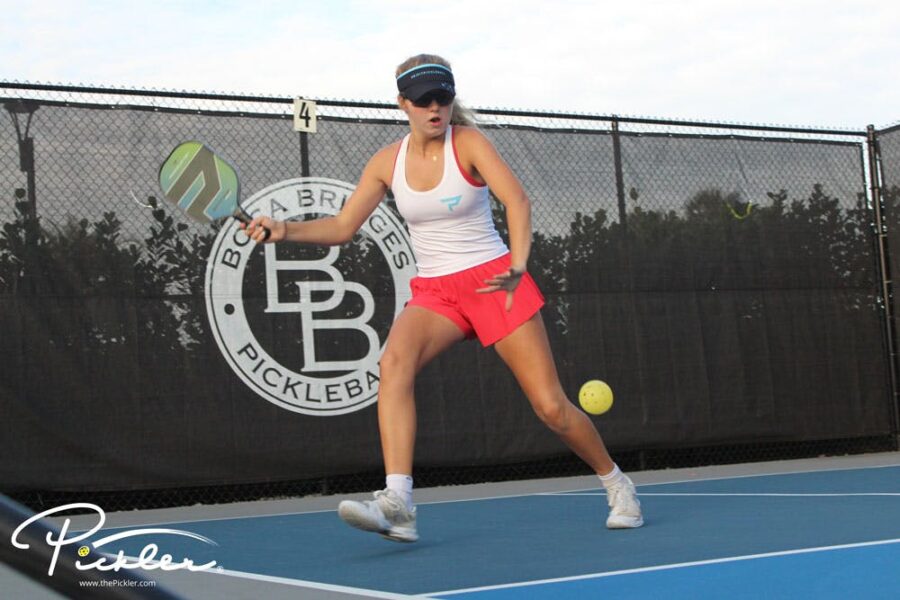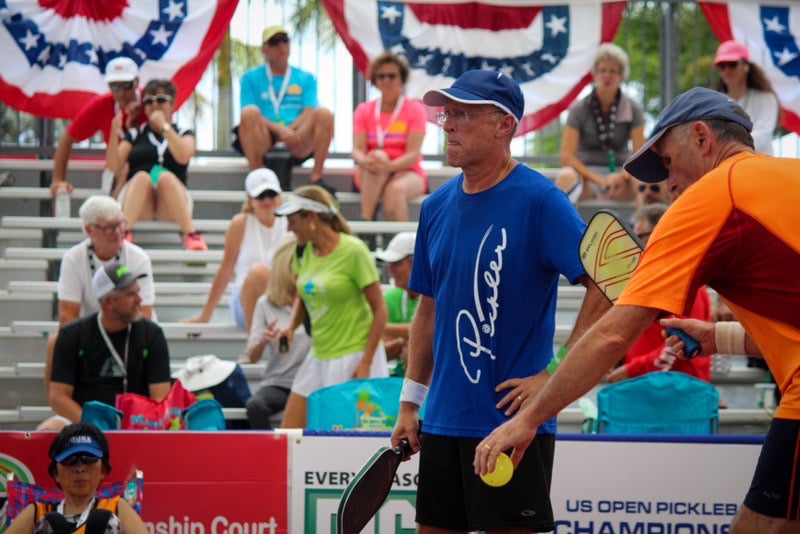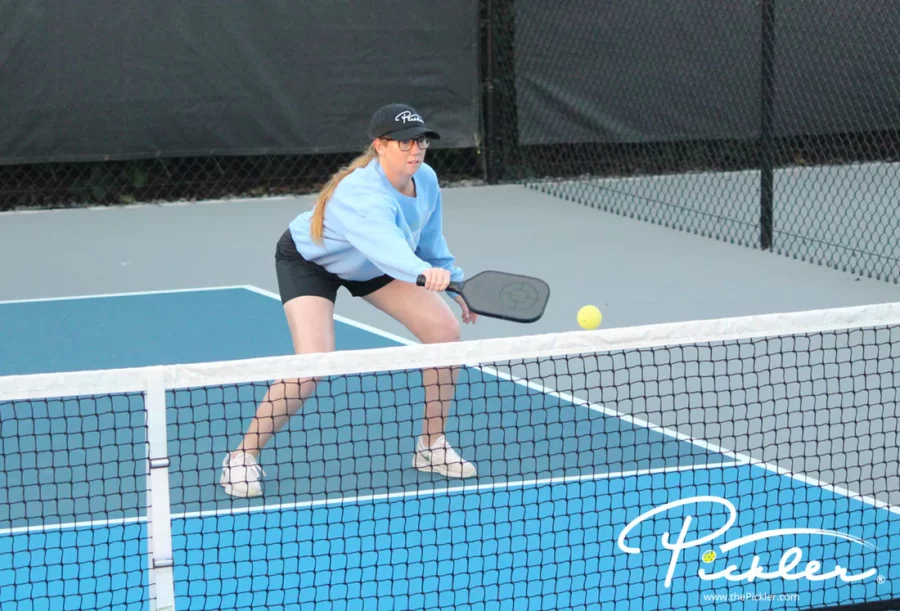If you have an Apple Watch, there’s no shortage of apps you can load on it that you never thought you needed.
There’s a Magic 8 Ball app that gives you random answers to “yes or no” questions. Always good to have if you require a baseless opinion on some matter.
Another app will tell you where the cheapest gasoline is for sale near you. There are watch apps that will track your biorhythms as you sleep, another that follows the movement of the stars above, and even one that will disclose your speed in knots – for all those times you are racing in a boat.
So, it makes sense that eventually we’d have watch apps to address a need that is central in our daily lives:
Keeping score in pickleball.
I first discovered the pickleball score-keeping app while playing against a woman who seemed to be constantly checking the time between rallies.
“You need to take a pill or something?”
“I’m keeping score on my watch,” she said.
I was intrigued. After all, is there anything more vexing in pickleball than keeping track of the score, and remembering who just served?
For those who haven’t played much pickleball this might seem like a minor concern, or maybe something that isn’t a universal issue.
But once you’ve played a few games it dawns on you that there must be some biological bleed-out of memory that occurs the moment you step on a pickleball court with a paddle in your hand.
You start out imagining that you have a relatively reliable memory, and by the time the score reaches three, you’re completely flummoxed as to who served that last rally and whether the score is 3-2-1, 2-3-2, or magically and impossibly, “I-2-3.”
And yes, I have heard the score called out as “1-2-3.”
I think we’ve all been in games where it will be one team’s second serve and one of the players on the receiving team will claim in all sincerity that he or she just served that last rally. And it will require the patience of a hostage negotiator to change his or her mind.
Zooming out to the larger world, I imagine that this must be why some people get wrongly convicted of a crime on the basis of faulty eyewitness testimony. Memory works in mysterious ways.
Or not at all. Especially while playing pickleball. There’s a ripe topic for scientific research to be done on the relationship pickleball has in disconnecting the neurons in your brain that are responsible for score keeping.
So, yes. Why not a watch app to keep score in pickleball? If we can have a watch app that lets us know how many fewer or more seconds of daylight we have from the previous day, then we ought to have one that authoritatively tells us the score of the pickleball game we’re playing.
I downloaded an app called Pickleball Score Keeper on my Apple Watch. It cost just $2.99, which is a small price to pay for being spared a court squabble over the score. And it had lots of glowing reviews.
“It has proven to me what I had previously thought: That nobody keeps score accurately, including me, without this type of aid,” one satisfied customer wrote.
The app is easy enough to use. You set up the parameters of the game. For example, doubles, game to 11, win by two. And you can create a database of information on the people you play against before you step on the court.
This means that through your phone, you can enter the names, skill ratings, paddle hand, age category, and mug shot photos of the other players. The app has a feature that records your wins, losses, duration of each game you play, and “unforced errors.”
I have a bone to pick with the “unforced errors” feature, something I will explain in a moment.
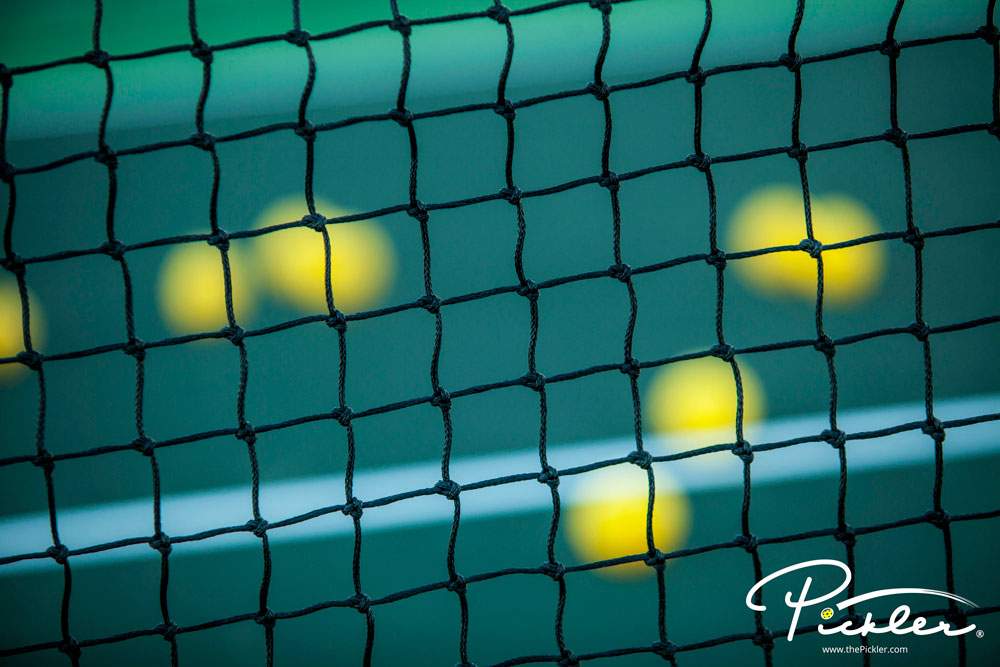
But first, here are the basics. Once you’re on the court and ready to play, the watch face shows you and your partner in green and your opponents in orange. The score, which is color-coded the same way, is in the middle of the screen.
The watch face wakes up with the movement of your wrist, and after each rally, you swipe one way if you win the rally, and swipe the other way if the other side does.
That’s basically all you have to do. Pretty simple.
Just tell the app which side serves first, and the app automatically keeps track of your post-rally screen swipes. It knows the game starts on 0-0-2, and during subsequent points, after the second server on one side loses a rally, the watch automatically switches the score to reflect the change in service, and puts a little ball next to the new server.
So far, so good. But let’s get back to the “unforced errors” option.
This allows you to assess each rally and determine whether an “unforced error” occurred. This is a soul-crushing feature of the pickleball scoring app.
By allowing you to analyze the last rally with a more critical eye, it makes you realize that pickleball, if you take the time to examine it, is mostly a procession of unforced errors.
And you thought you were having fun! No, you were screwing up yet another rally with a preventable flub.
It has given me a new outlook on the game, and not necessarily a comforting one.
By confronting the sheer volume of unforced errors in every rec-level game, I’ve arrived at a disquieting kind of new wisdom.
I’ve come to realize that unforced errors permeate the game, and the variation in unforced errors comes not in whether they occur, but whether or not they’re punished or spared by subsequent unforced errors.
Or to put it another way, when you’re playing somebody better than you, your unforced errors get punished. But when you’re playing with a less skilled person, those same errors get spared – which is, in itself, an unforced error committed by your opponent.
Even those rallies that end on a triumphant, well-placed ball for a skillfully executed winner, are most likely predicated by unforced errors.
Here’s a common progression of a rally. The server executes a manageable serve to an opponent, who returns the serve, but not as deeply as it could be.
The shallow return allows the server to run in and hit a hard return at the feet of the person who made the weak return and is now standing in no-man’s land.
That player then either (a) hits the ball into the net (b) hits a pop up that’s an easy put-away for an opponent waiting on the non-volley-zone line, or (c) manages, despite the poor court position, to hit a perfect drop volley that catches the sideline for a winner.
If I want to compound this scenario even more, I could say that the easy pop-up at the non-volley-zone line doesn’t result in a put-away, but a hard smash into the net – yet another unforced error.
So, how do you assess all the “unforced errors” in that scenario? See what I mean? It’s better to just ignore this feature and keep moving on, in the same way you do when passing an accident scene on the side of the highway.
That’s my advice. By all means, try to eliminate unforced errors in your game, but for the sake of your own self-esteem, don’t start counting them. You’ll only get depressed.
I tried the Pickleball Score Keeper recently while partnering with my wife in a doubles game with friends.
“You’re being annoying,” my wife announced to me as I paused between each point to make sure that my swipes had been properly recorded.
“Hang on,” I said. “I just need to correct something.”
There were a couple of times when my swipe didn’t register with the watch. I’ve read the instructions again, and it advised me to start swiping from the middle of the watch face, not the side.
In the end, I took the watch off and started playing the way we always do.
“What’s the score?”
Will I use the pickleball scorekeeping watch app again? I’m thinking of asking the Magic 8 Ball app that question.
